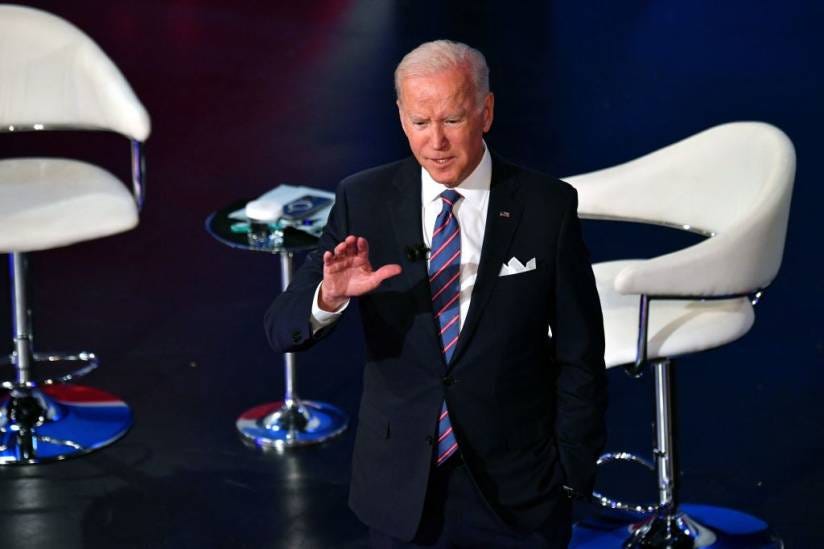5 Transnational Issues Impacting Biden’s Agenda
Managing the link between domestic and international policies remains central to America’s revival
President Joe Biden predicted success in his push to get members of his own party to agree on a package of public investments in infrastructure and the social safety net in a town hall in Baltimore this past week.
The event was part of an effort by the Biden White House to get out of the Beltway bubble and behind-the-scenes legislative wrangling and speak directly to the American public about the bigger picture, something that the administration should do more often to advance its agenda.
As John Halpin recently argued, it is important to keep going back to the central idea that these measures are aimed at helping build a stronger economic foundation for America’s workers and businesses.
As the government in Washington D.C. spent the past few months trying to iron out the wrinkles in their agenda, some new dynamics have appeared that are already impacting the national mood and political environment. These factors don’t fit clearly into separate categories of “domestic policy” or “foreign policy,” but instead are both.
1. Energy and climate security. The recent price spikes in energy costs is already impacting the national debate, as is the broader discussion about making the transition to a cleaner and greener economy. The climate discussion will be front and center with the international climate conference in Glasgow kicking off later this month. Striking the right balance in addressing the energy price runup in the short run with a long-term plan for making a major shift in energy policy is no easy task, and it requires an approach that has one eye on domestic dynamics and a second on the international factors.
2. Supply chain efficiency and security. Another factor that has major domestic and international dimensions are supply chain woes contributing to some shortages and price inflation. In addition, there are some concerns about the security of U.S. supply chains in certain sectors, and the Biden administration has taken some steps to address this. But the problems with supply chains are complicated as the world’s economy reorders itself.
3. Cybersecurity. A third issue that knows no borders is cybersecurity, with the United States facing a steady stream of hacks and attacks, and the government is trying to stay on top of an ever-shifting landscape in cyberspace. Earlier this month, the Biden administration brought together more than two dozen countries to talk about ways to disrupt and defend against cybercrime, an important effort that didn’t get as much attention in U.S. foreign policy circles as it should have.
4. Immigration. U.S. Border Patrol arrests hit the highest levels ever recorded in the 2021 fiscal year that ended in September, and the U.S. government detained more than 1.7 million migrants along the Mexico border in that same period. Striking the right balance on immigration policy is a challenge that has bedeviled several U.S. administrations, and none have gotten it right. The tight labor markets in America, combined with factors pushing people to leave their countries, particularly in the Western hemisphere, make it a certainty that the immigration policy challenges are not going away and are likely to get bigger.
5. The COVID-19 pandemic. The United States has seen some good news with declines in cases in recent weeks, but the world is still in the very early stages of deploying vaccines, with about half of the world’s population receiving one dose. As seen over the past year with the emergence of new variants, the COVID-19 pandemic could have some additional surprises in store for the world and America.
These five transnational issues continue to define the landscape in America and the world in ways that is difficult for U.S. policymakers to grapple with on both the domestic and international fronts at the same time. Too often, the foreign policy dimensions and the domestic policy implications are dealt with separately, rather than in an integrated fashion. This is in part due to bureaucratic and policy management factors, but it is also linked to how the issues are discussed and analyzed.
As the Biden administration looks to move forward with its legislation on Capitol Hill and move towards the next phase of its agenda, it should examine ways to better coordinate and link the domestic and foreign policy responses on these five transnational issues.



